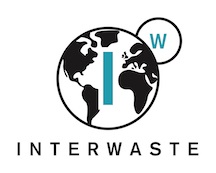-
Courses

Courses
Choosing a course is one of the most important decisions you'll ever make! View our courses and see what our students and lecturers have to say about the courses you are interested in at the links below.
-
University Life

University Life
Each year more than 4,000 choose University of Galway as their University of choice. Find out what life at University of Galway is all about here.
-
About University of Galway

About University of Galway
Since 1845, University of Galway has been sharing the highest quality teaching and research with Ireland and the world. Find out what makes our University so special – from our distinguished history to the latest news and campus developments.
-
Colleges & Schools

Colleges & Schools
University of Galway has earned international recognition as a research-led university with a commitment to top quality teaching across a range of key areas of expertise.
-
Research & Innovation

Research & Innovation
University of Galway’s vibrant research community take on some of the most pressing challenges of our times.
-
Business & Industry

Guiding Breakthrough Research at University of Galway
We explore and facilitate commercial opportunities for the research community at University of Galway, as well as facilitating industry partnership.
-
Alumni & Friends

Alumni & Friends
There are 128,000 University of Galway alumni worldwide. Stay connected to your alumni community! Join our social networks and update your details online.
-
Community Engagement

Community Engagement
At University of Galway, we believe that the best learning takes place when you apply what you learn in a real world context. That's why many of our courses include work placements or community projects.
SAFER
Welcome to the SAFER Research Project
Welcome to the website for the “Screening of the Irish Waste Stream for Persistent Organic Chemicals (SAFER)”
This research project is a collaborative effort between the University of Birmingham’s School of Geography, Earth, and Environmental Sciences, and NUIG’s School of Physics , and is funded by the Environmental Protection Agency of Ireland. This Project is a continuation of a previous EPA-funded research project carried out by the same research team. The preceding “WAFER” project (Identification and Treatment Options for Waste Streams of Certain Bromine Containing Flame Retardants), involved the screening and assessing of POP-BFRs in a variety of waste plastic materials in order to determine the resulting effects on the circular economy. Among the major findings of WAFER was the discovery that other, non-regulated brominated flame retardants (BFRs) were present at high concentrations alongside those which are listed under the Stockholm Convention on Persistent Organic Pollutants. This represents a barrier to the effective screening of waste plastics containing POP-BFRs as the presence of other “novel” BFRs (NBFRs) can interfere with screening processes.
Thus it is important to understand the relative contributions of the various BFRs (regulated and non-regulated) in order to optimise screening processes designed to remove hazardous chemicals from circulation. The SAFER project aims to fill this knowledge-gap by building on the findings of the WAFER project (for full details, see EPA Report #272) to determine the levels of NBFRs in waste plastics, the shifts in concentrations of POP-BFRs resulting from their regulatory restrictions, and the implications this may have on any hazardous chemical screening processes.
SAFER will additionally build upon another project which documented the presence of certain hazardous chemicals in landfill leachate from sites around Ireland. The “FUEL” project (Furthering Understand of Emissions from Landfilled Waste Containing POP-BFRs and PFOS) discovered that large concentrations of BFRs as well as perfluoroalkyl substances (PFASs) were present in landfill leachate collected from sites around Ireland. This shows that waste containing high concentrations of these chemicals were (and in some cases still are) being disposed of in landfills and are thus eluting into leachate and potentially contaminating the environments surrounding these sites. SAFER aims to determine which waste destined for landfilling is treated with these chemicals, how much of this waste ended up at said sites, what degree of environmental contamination occurred because of their presence, and what effects this may have on leachate treatment and groundwater quality.
Project Partners
 |
The National University of Ireland Galway is ranked in the top 2% of universities globally in the Times Higher Education rankings and is the most successful university for the commercialisation of its research in Ireland. The research-led institute has a growing international profile in the fields of Biomedical, Computational, and Environmental sciences, having partnered with over 2700 research institutes in over 100 countries worldwide. It houses both the Ryan Institute on energy, environment and marine studies and the Centre for Climate and Air Pollution Studies, both of which have gained widespread international recognition within their respective fields of research. |
 |
The University of Birmingham is a leading research-led UK university. It ranked 15th out of 154 institutions UK institutions in the 2014 Research Fortnight University Power Ranking, with 81% of its research outputs ranked as either world-leading or internationally excellent in the 2014 Research Excellence Framework. Having furthermore been ranked at 130 in the Times Higher Education rankings, it is in the top 1% of universities worldwide boasting many ground-breaking inventions and discoveries as well as several Nobel Prize recipients. |


















